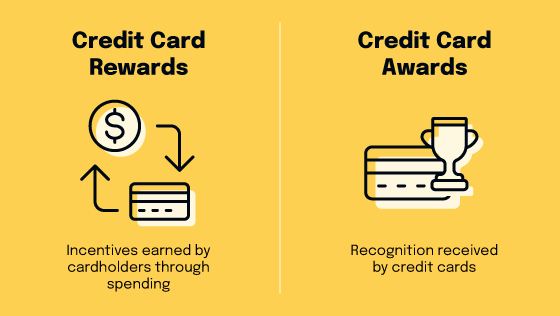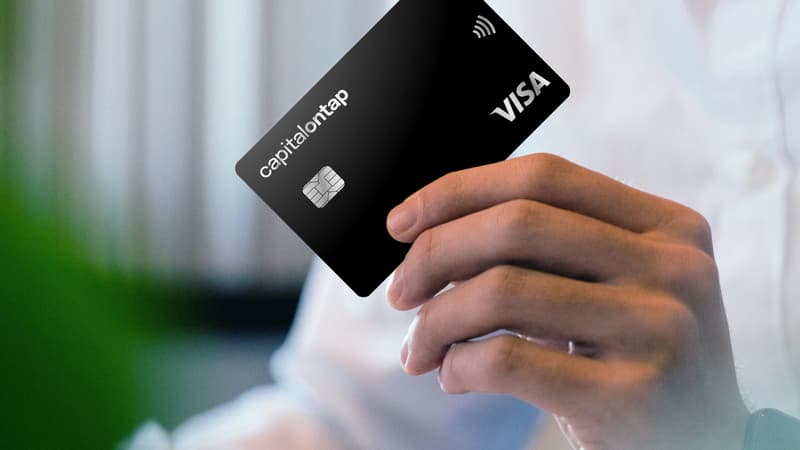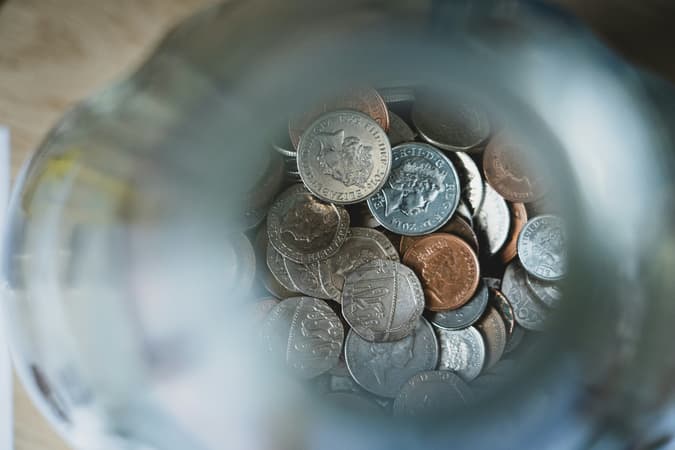Jump to a section
If you're using a credit card for your business expenses and reaping the benefits of those enticing rewards, it's crucial to understand whether these rewards are taxable to save you from potential surprises and ensure you make the most of your hard-earned rewards.
In this blog post, we'll dive into the world of credit card rewards and their taxability specifically for small businesses in the UK. We'll explore various types of rewards, such as cashback, points, miles, travel perks, gift cards and merchandise, signup bonuses, and even referral incentives. Additionally, we'll provide valuable tips to help you maximise your business credit card rewards, so you can make the most out of every pound spent.
Are business credit card rewards taxable?
Untangling the web of credit card rewards taxation is confusing. So to ensure you're well-equipped to navigate this important aspect of your business finances, we’ve broken them down for you.
Cashback rewards
Cashback rewards are a type of credit card reward program where cardholders earn a percentage of their purchases back as cash. For example, The Capital on Tap Business Credit Card offers unlimited 1% cashback. So, if you spend £100, you would receive £1 back as a reward. Cashback from credit cards can typically be redeemed as a credit, deposited into a bank account, or used to purchase gift cards.
But, would this cashback be taxable?
The answer ultimately is, it depends. Depending on the way your business is set up and operates they might be or they might not be.
In the UK, HMRC sets out guidance that can help businesses work out their tax liabilities here which discusses benefits in detail.
You can also make use of a number of professionals like financial advisors or accountants who can help you work out your tax responsibilities for all types of credit card rewards.
Airmiles rewards
Airmiles can be redeemed for various rewards, such as free flights, hotel stays, rental cars, or merchandise. The number of points or miles earned depends on the amount spent and the specific credit card program.
HMRC advises that the VAT treatment of air miles varies depending on the complexity of the scheme. If businesses pay third-party suppliers for rewards, they can't reclaim VAT on those payments. VAT should be charged by the supplier on goods or services provided to customers. Its guidance also covers voucher exchanges, point donations, employee rewards, loyalty discount cards, and separate promoters. VAT is determined based on total consideration received for rewards. Business gifts rules apply when rewards are given solely for points.
HMRC’s guidance on VAT Tax for airmiles can be found in full here.
Travel rewards
Travel rewards are credit card rewards that are specifically tailored for frequent travellers. These rewards often include benefits like airline miles, hotel points, access to airport lounges, travel insurance, and other travel-related perks.
Similarly to airmiles rewards, HMRC advises that the VAT tax on travel rewards varies depending on the reward type. HMRC’s guidance on travel rewards can be found in full here.
Gift cards and merchandise
Some credit card reward programs, including Capital on Tap, offer the option to redeem earned points or rewards for gift cards or merchandise. Cardholders can choose from a variety of gift cards from popular retailers or redeem their rewards for merchandise such as electronics, home goods, and clothing, these types of rewards are often referred to as non-monetary consideration.
HMRC's guidance states that non-monetary consideration occurs when customers agree to do something in exchange for goods or services. In such cases, the value of the non-monetary consideration is its monetary equivalent, typically the price the customer would pay if money was the sole consideration. An example is when a customer receives a discounted price on goods by providing a service in return.You can read the guidance in full here.
Signup bonuses
Signup bonuses are rewards offered to new cardholders when they open an account and meet specific requirements, such as spending a certain amount within a specified time period. These bonuses can come in the form of cashback, points, miles, or other types of rewards. Signup bonuses are a way for credit card issuers to attract new customers and encourage them to start using the card.
The taxability of signup bonuses depends on the form in which the bonus is received. For example, points and airmiles are generally not taxable, whilst cashback in this instance is taxable.
Refer-a-Friend bonuses
Refer-a-friend bonuses are rewards given to cardholders who refer their friends, family members, or acquaintances to apply for a credit card. When someone successfully applies for a credit card using the referral link or code provided by the existing cardholder, both parties can receive a bonus. This bonus can be in the form of cashback, points, miles, or other types of rewards, providing an incentive for cardholders to spread the word about the credit card they are using.
HMRC states that if someone were to receive a cash bonus from their bank or lender as a result of successfully referring someone to join the institution, this is classed as “miscellaneous income and is therefore taxable income.”
What's the difference between awards and rewards?
The terms "credit card awards" and "credit card rewards" are often used interchangeably, but they can have slightly different meanings depending on the context.

Credit card rewards: This term typically encompasses the broad range of benefits that credit cardholders can earn based on their spending. These rewards can take the form of points, miles, or cashback, which can be redeemed for various goods, services.
Credit card awards: This term is often used to refer specifically to awards or accolades received by credit cards themselves. These awards are often given by industry publications, websites, or experts to highlight credit cards that offer exceptional benefits, features, or customer experiences. Credit card awards can signify a card's overall value, customer satisfaction, or innovation in the market.
Maximising your business credit card rewards
Putting business expenses on your rewards credit card is an excellent way to earn great rewards quickly. However, to maximise your rewards, you’ll need to be strategic about the card you choose and how you use it. Also, keep in mind that credit cards come with fees and interests, so make sure you keep your costs under control while you are earning your rewards.
Choose the right card
The first step to maximising your rewards is having the right card in the first place. Some cards reward you on purchases in general, while others may have different tiers of rewards in specific categories. Review your spending habits and make sure you choose a card that rewards you the most on your usual purchases. However, remember that it’s usually not recommended to base your credit card decision only on rewards you can earn. There are several other factors worth considering.
Read more in our guide to choosing the right credit card for your business.
Read the small print
Rewards programs can be complicated so make sure you read the fine print before you sign up. You should have full clarity on how you can earn your rewards, if there are any limits on how much you can earn and any redemption conditions. Also, remember some rewards may have an expiry date - it’s worth keeping this in mind, so you don’t miss out on any rewards you have earned.
Take advantage of signup bonuses
Most rewards cards come with a welcome bonus which is dependent on spending a certain amount of money within a specified period. Sign up bonuses are usually a lump-sum of points, worth a few hundred pounds, which can boost your earnings. Make sure you know what the bonus criteria are so you can meet them.
Use your credit card for everyday and recurring purchases
Make the rewards credit card your ‘front of wallet’ card – use it as much as possible so you can earn rewards without even thinking about it. Find any recurring expenses that can be paid for by a credit card like office costs, office supplies, office food deliveries, equipment, internet and phone bills, utilities or petrol. The more spending you can put on your card, the more rewards you can earn.
Pay your balance on time
Getting charged interest can eat up any rewards you earn, so make sure you always pay your balance on time. Set yourself a simple rule to always pay off your balance, so you get the most of your rewards.
Redeem your rewards wisely
Most credit cards offer different redemption options so before you cash out your points, review what they are, and which ones offer the best value. If you travel a lot, it may be worth redeeming your points for air miles rather than cashback, so you benefit from discounted travel.
The bottom line
Understanding the taxability of credit card rewards is crucial for small business owners in the UK. Based on our exploration of various types of rewards, we've learned that cashback, airmiles, travel rewards, and gift cards/merchandise generally are not taxable according to HMRC guidelines. However, the taxability of signup bonuses and "refer-a-friend" bonuses depends on the specific form in which they are received.
To maximise your business credit card rewards, it's essential to choose a card that aligns with your spending habits. Reading the fine print, being aware of redemption conditions and expiry dates, and taking advantage of signup bonuses can further enhance your rewards. Using your credit card for everyday and recurring purchases while paying off your balance on time will ensure you make the most out of your rewards. Lastly, consider redeeming your rewards wisely, opting for options that offer the best value based on your business needs, such as air miles for frequent travellers.
Remember, while credit card rewards can be a valuable asset to your business, it's important to strike a balance and keep your costs under control. By navigating the world of credit card rewards with knowledge and strategy, you can optimise your rewards program and enjoy the benefits of every pound spent.
Start maximising your business credit card rewards today and watch your business thrive with a Capital on Tap Business Credit Card.
This does not constitute financial advice. If you want to understand your business’ tax obligations in detail, you should speak to your financial advisor or accountant.











